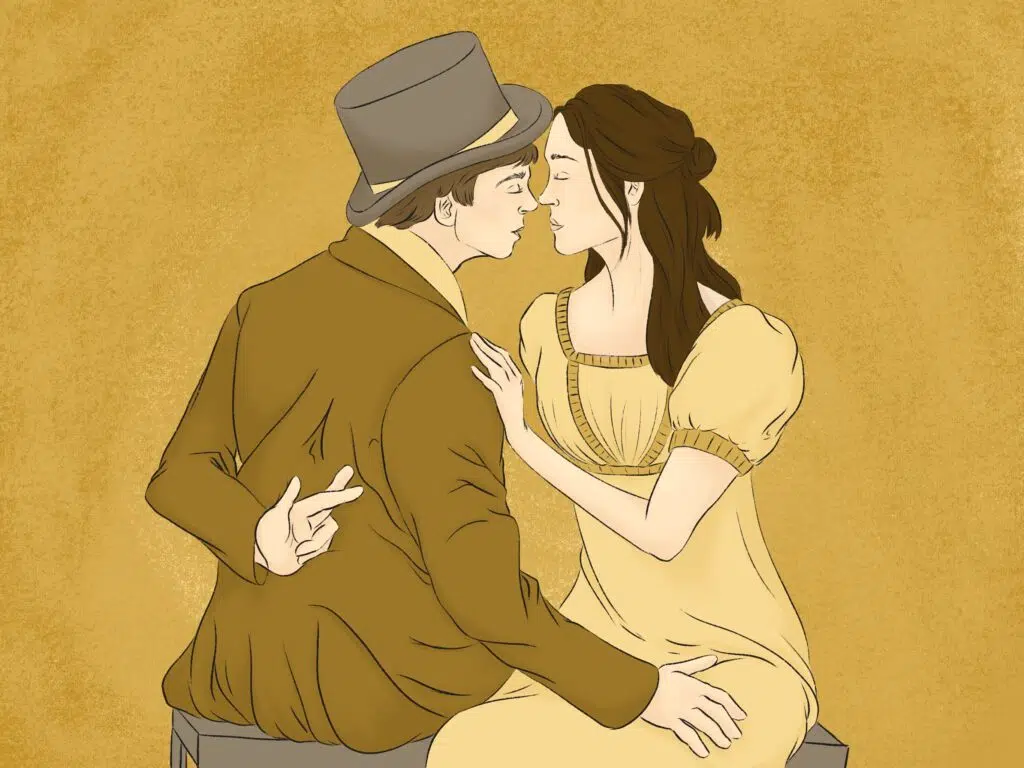By Susan Catto,
I don’t believe in defining anything I enjoy as a “guilty pleasure”—I’ll read and watch what I like and not feel bad about it—but I admit to feeling a little sheepish about my enjoyment of F-Boy Island. The HBOMax hit (on Crave in Canada) follows three women as they sort through two dozen suitors—half of whom are nice guys looking for relationships, and half of whom are “F-boys.” Even if you haven’t heard the term, you know the type: gorgeous, charisma to spare, a guy who flatters women with his attention, but is ultimately just looking to play. The goal isn’t always sex; an F-boy is also in it for the fun of winning, whether it means convincing a woman to change her position from a “no” to a “yes,” or showing up other men with his superior skills as a player.
Cosmopolitan magazine (a more appropriate source here than the Oxford English Dictionary) defines him thus:
A fuckboy: actually the worst. A fuckboy is a guy who strings you along to keep your thirst for them going…but also blows you off and doesn’t treat you with respect. We’ve all been there.
Maybe we have all been there, but guess who was there first—like, more than 200 years ago?
Jane Austen.
An author who broke new ground in countless literary ways (from satire to sentence structure), Austen was also the first and best at creating fictional F-boys. (Back then they would have been called rake or bounders.)
Scene-stealing F-boys appear in each one of her novels, from the casually destructive Captain Fredrick Tilney of the first book she wrote, Northanger Abbey, to the hardened rake Henry Crawford of her final novel, Mansfield Park.
And no one—not even comedian Nikki Glaser, the stud-skewering host of F-Boy Island—sees through and lays bare the machinations and motives of F-boys with as much delicious glee as Austen.
I was watching season one of F-Boy Island by night and listening to an audio version of Mansfield Park by day when this realization hit me. Mansfield Park anti-hero Henry Crawford tells his sister Mary that, to avoid boredom, he plans to make Fanny Price, the strait-laced heroine, fall in love with him. “You ought to be satisfied with her two cousins,” replies Mary—for Henry has already toyed with the younger Bertram sister, Julia, and made the elder, Maria, believe he was on the brink of proposing.
But Henry says he cannot be satisfied “without making a small hole in Fanny Price’s heart.”
“I will not do her any harm, dear little soul! only want her to look kindly on me, to give me smiles as well as blushes, to keep a chair for me by herself wherever we are, and be all animation when I take it and talk to her; to think as I think, be interested in all my possessions and pleasures, try to keep me longer at Mansfield, and feel when I go away that she shall be never happy again. I want nothing more.”
In a few lines of dialogue, Austen makes it clear that winning over the women of Mansfield Park is a game to Henry—a way of passing the time and gratifying his ego. Julia and Maria were easy targets, but reticent, proper Fanny—she’s a challenge he can’t resist.
Henry is such an F-boy.
Once you see the parallels, you can’t unsee them. All of Jane Austen’s villains are F-Boys.
John Willoughby: Archetypal F-boy
Perhaps the best example is John Willoughby of Sense and Sensibility, who is so “uncommonly handsome” and graceful that even skeptical Eleanor first sees him “with an evident wonder and a secret admiration.”
In scooping up Marianne after she tumbles down a hill, Willoughby evinces a confidence and “rapidity of thought” that gives him an advantage over Marianne’s hesitant suitor Colonel Brandon—much as F-Boy Island stars like Casey and Garrett succeed in interrupting the women’s tete-a-tetes with more modest Nice Guys.
Willoughby is the king of string-alongs, exposing the smitten Marianne to gossip and scandal with his “animated admiration” and unchaperoned curricle rides.
“I had no other intention…than to pass my time pleasantly,” he confesses later. “Careless of her happiness, thinking only of my own amusement, giving way to feelings which I had always been too much in the habit of indulging, I endeavoured, by every means in my power, to make myself pleasing to her, without any design of returning her affection.”
Even his excuse for acting this way is classic F-boy: he didn’t understand how hurtful his actions were because—poor, innocent hottie—he’d never been in love before.
Yet even after he realizes he loves Marianne, Willoughby dumps her in a cold, heartless manner to marry a woman who can keep him in the hunters-and-pointers lifestyle he requires. I can’t help but think of F-Boy Island’s chief villain Garrett and his choice in the season-one finale to take the show’s $100,000 cash prize instead of sharing the money with Sarah, the woman he had pretended to love. “This is a game,” he tells Sarah. “I don’t see a future with you outside of this experience.”
The analogy isn’t perfect, of course, but that wince-inducing feeling of watching a sweet, naïve woman fall for an F-Boy, only to be publicly humiliated? Jane Austen could have told you it would make for must-see TV.
F-boys Everywhere
In Austen’s novels, F-boys do more than humiliate women or take their money. Willoughby seduces and abandons Colonel Brandon’s ward, leaving her pregnant and penniless. George Wickham of Pride and Prejudice first tries to elope with 15-year-old heiress Georgiana Darcy, then runs off with 15-year-old Lydia Bennett. William Elliot of Persuasion convinces Penelope Clay to live as his mistress in a cynical ploy to keep his place as the next Sir Elliot of Kellynch Hall. Henry Crawford of Mansfield Park interrupts his courtship of Fanny to leave town with the now-married Maria. None of the men love or respect the women they seduce; what’s worse, they know the women will lose family, friends and future prospects, and they don’t care.
The ruined reputations and blighted lives of F-boy victims set the stakes for Austen’s heroines; in a society where marriage was the only “career choice” women of a certain class could make, trusting the wrong man will have lifelong consequences.
But Austen was writing comedies, not tragedies, and her intelligent, self-respecting heroines are spared the dire fates of women who choose F-boys.
Fanny Price sees through Henry Crawford from the start. In Emma, the title character enjoys the attention of F-boy Frank Churchill—who pretends to pursue Emma when he’s secretly engaged to Jane Fairfax—without taking him too seriously or risking her heart. In Northanger Abbey, it’s the heroine’s shallow friend Isabella, not Catherine herself, who breaks her engagement to a nice guy only to be dropped by F-boy Captain Tilney. Even Marianne moves on—sadder but wiser—to marry Colonel Brandon.
If romance is a contest, Austen’s women always win, choosing nice guys over F-boys every time—if only after enjoying some F-boy attention.
Enduring Appeal
If the novels were set in the present day, Willoughby, Wickham and the others might end up with a hundred thousand new Instagram followers and a lucrative side-hustle as a influencer, like the unapologetic rakes of F-Boy Island.
As it is, the F-boys of Jane Austen walk away mostly unscathed—with a wife or mistress they don’t like, perhaps, but with more money and reputation than they deserve. Even sensible Elinor can’t bring herself to hate Marianne’s betrayer, Willoughby.
“She felt that his influence over her mind was heightened by circumstances which ought not in reason to have weight,” writes Austen in Sense and Sensibility.
Those circumstances? They’re the same ones that make the women of F-Boy Island want to believe that the F-boys can change: a face and body “of uncommon attraction” and an “open, affectionate, and lively manner which it was no merit to possess.”
The women of F-Boy Island might want to take a cue from Elizabeth Bennett, who enjoyed an stimulating flirtation with the handsome Mr. Wickham, but ultimately chose the far superior (and far more loyal) Mr. Darcy.
Trifling with Wickham was fun, though, for both Elizabeth and the reader. Such is the enduring appeal of the F-boy, who makes for wildly entertaining literature and must-see TV, especially when approached with the blend of humour and humanity that marks all of Jane Austen’s work.

